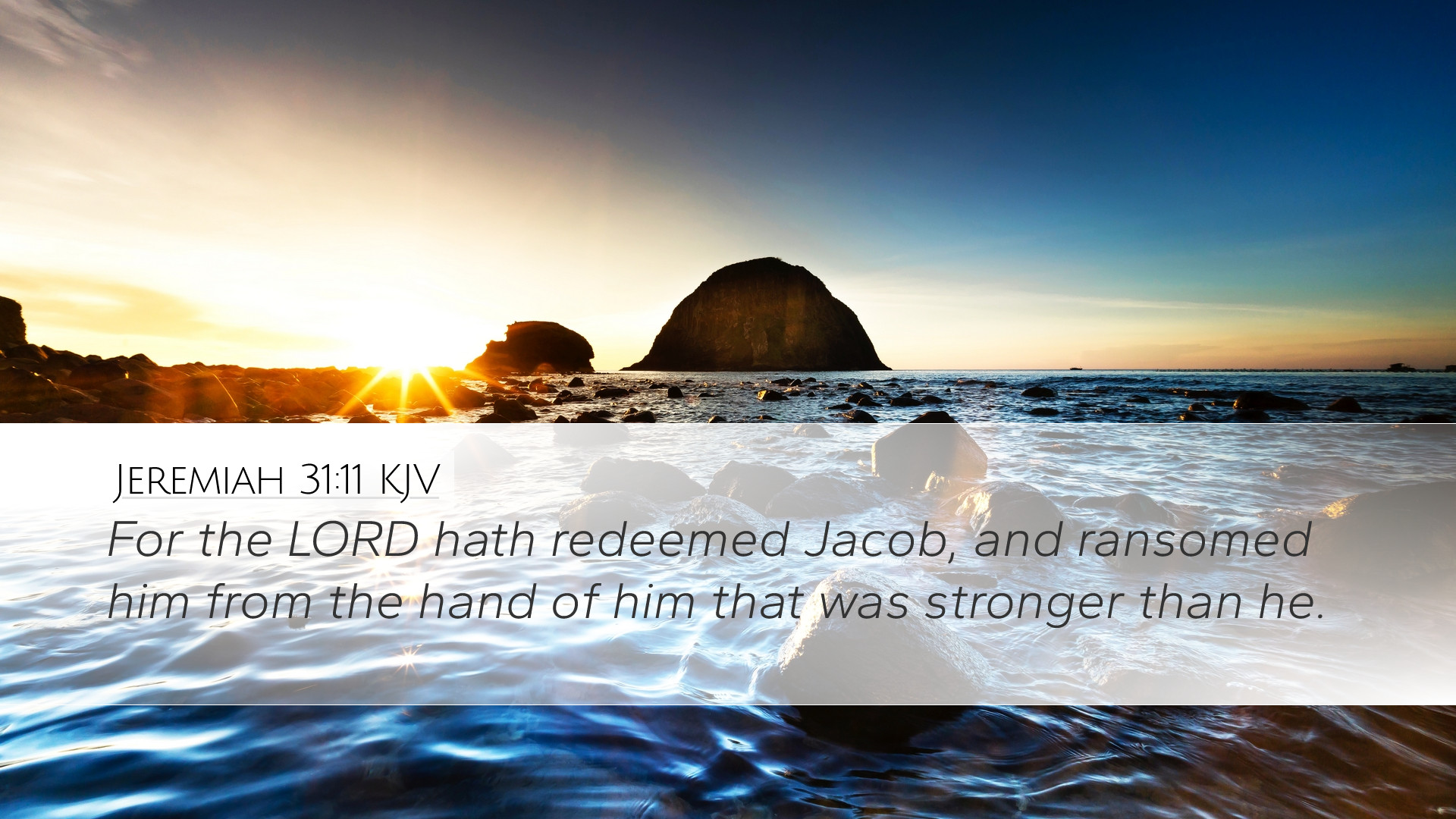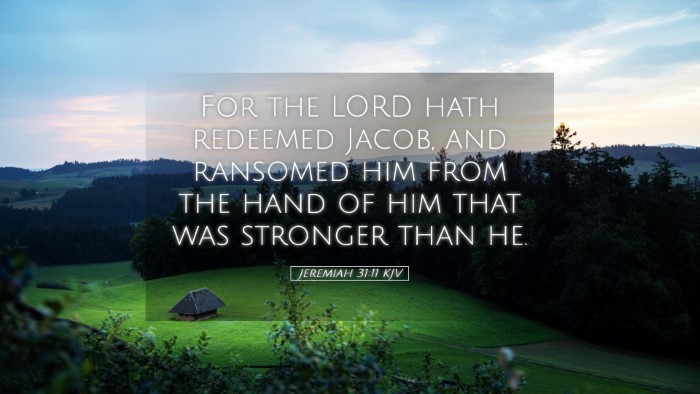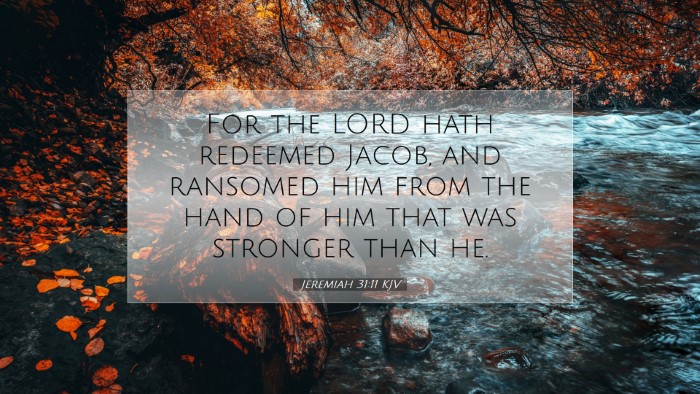Commentary on Jeremiah 31:11
Text of the Verse: "For the Lord hath redeemed Jacob, and ransomed him from the hand of him that was stronger than he."
Introduction
This verse sits at the heart of God’s promise of restoration for Israel. The imagery used by the prophet Jeremiah encapsulates the broader theme of redemption that permeates the Scriptures. Through the insights of Matthew Henry, Albert Barnes, and Adam Clarke, we will explore the dimensions of this redemption, the enemies faced, and the assurance it brings to God's people.
Theological Insights
Redemption as Divine Intervention
According to Matthew Henry, the term "redeemed" signifies a profound act of divine intervention. The Lord's redemption of Jacob represents a return to favor, reflecting how God acts mercifully toward His people in their dire circumstances. This reiterates God’s sovereignty and commitment to His covenant, assuring believers of His capacity to rescue them from insurmountable odds.
Understanding 'Ransom'
Albert Barnes elaborates on the word "ransomed,” which denotes a significant price paid to deliver someone from bondage. This notion resonates with the New Testament understanding of Christ's sacrifice. Just as ancient Israel was freed from their oppressors, believers today find liberation through Christ, the ultimate ransom for our souls.
The Stronger Opponent
Adam Clarke emphasizes the identity of "him that was stronger than he." This phrase encapsulates the challenges that Israel faced—primarily referring to Babylonian captivity. Clarke notes that these formidable enemies symbolize any oppressive forces that intimidate God’s people throughout history, leading to a theological reflection on spiritual warfare.
Historical Context
The historical backdrop of Jeremiah’s prophecies is crucial to understanding this verse. Israel had experienced profound suffering and exile due to their disobedience. Yet, God’s promise through Jeremiah highlights His intent to bring restoration. All three commentators note that amid desolation, God’s faithfulness prevails, and His ultimate plan is towards reconciliation and hope.
Practical Applications
- Encouragement in Trials: Believers are reminded that struggles are transient, as God is actively working to redeem and restore.
- Hope for the Oppressed: This verse serves as a beacon for those experiencing oppression. God’s promise challenges the despair faced by many, encouraging them to look toward divine intervention.
- Understanding Redemption: The concept of ransom opens a dialogue about the price of salvation, provoking theological discussions on grace, mercy, and divine love.
Spiritual Reflections
This verse invites a deeper reflection on God’s character—His role as Redeemer, Protector, and Deliverer. It befittingly paves the way for a New Testament exposition where Jesus embodies the ultimate fulfillment of redemption through His death and resurrection. As we meditate on this verse, we should ask how we can embody these qualities of God and become agents of restoration in our communities.
Conclusion
In Jeremiah 31:11, the promise of God’s redemption signifies His unwavering commitment to His people, illustrated through the historical events of Israel’s exile and hope for restoration. The insights from Matthew Henry, Albert Barnes, and Adam Clarke provide a rich tapestry for understanding the multifaceted nature of this verse, inviting pastors, students, theologians, and scholars into deeper exploration and application of the biblical text.


